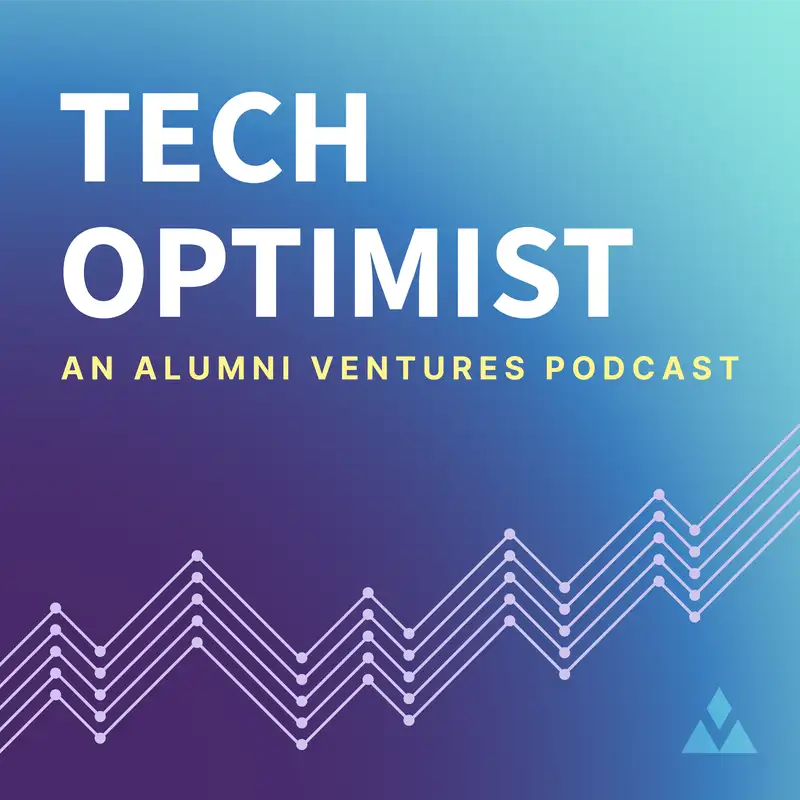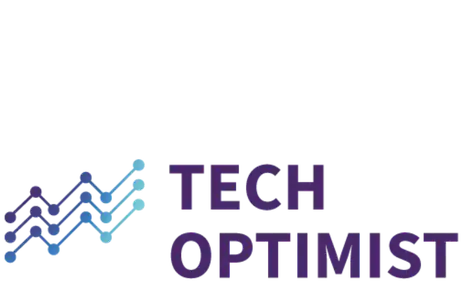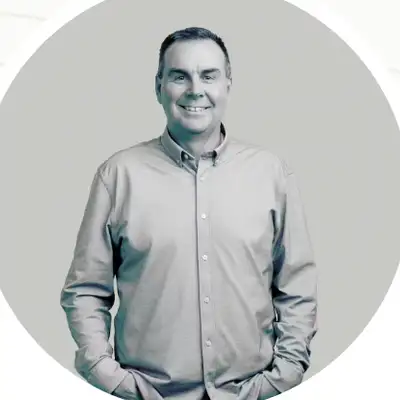#43 - Meet the Start-Up With the AI Engine Transforming Customer Understanding
Samantha Herrick:
What if there was a database out there that helped provide the psychology for your customers? Well, apparently there already is.
Joe Schaeppi:
And we basically built the artificial intelligence to understand human psychology in digital spaces. Any company with any customer, any audience who needs to understand them better because we've reached critical mass through the gaming ecosystem.
Greg Baker:
I don't know anyone who doesn't game on some level on their smartphone.
Samantha Herrick:
Okay. We're rolling. Hi, everyone. Welcome back to this episode of the Tech Optimist. This is episode 43. And today, we have a Meet the Startup episode with a startup called Solsten. Now first, we're going to get some housekeeping things out of the way. Your guide or the AV internal savant who's going to take us through the episode with the entrepreneur today is Greg Baker at Alumni Ventures. And then our guest is Joe Schaeppi. He's the CEO and co-founder of said company, Solsten. And the, of course, there's myself. My name is Sam Herrick, and I am the guide for the podcast and just the tech note writer and everything.
We're trying something new for this episode. You get to see me, which is really cool if you're watching this video. And I'm going to experiment with a new intro style for this show because we felt the other intro was a little bit monotonous and we want to get this ad-lib conversational style element back into the podcast.
So today, Joe and Greg talk a lot about psychology and about how the human person that your company is serving isn't just a metric. They're a human and they have wants and desires and fears and conclusions about things that they see and interact with and experiences, that that is so important as companies when they're creating things or exploring new avenues for their company. They need to understand that.
Joe and Solsten talk about how they have learned so much through the gaming community. And we get into that a little bit further. We talk about a really cool State of the Player Report that came out this past year about just the state of society that Joe likes to call it, and it really dives into the state of the player. And they then open up that Pandora's box on how this idea of exploring your audience and understanding your audience doesn't have to stick to gaming and how that can be brought to many other realms of technology, innovation, engineering, and just the startup community in general.
So Joe and Greg also talk about Solsten's products. So they have a thing called the Navigator, which is something that's going to be launching at the end of this month, August, and it's called Navigator and it's their database where you can search anything almost. I think it's mostly tailored to companies, but you can search anything and it'll give you a lot of tailored metrics to that said group of people. So it's almost like a Google or a dictionary or an encyclopedia for these certain psychological benefits of different groups of people.
They also talk a little bit about marketing and how through niche markets and analytics on the user can tailor the game or company or product to said audience. So I'm going to stop babbling and I'm going to hand it over to Greg who's going to start off the interview and get us going.
Greg Baker:
Hello, everybody. My name's Greg Baker. I'm managing partner at Alumni Ventures, and welcome to another edition of the Tech Optimist podcast. I'm joined today, Joe Schaeppi, the co-founder and CEO of Solsten, which was originally 12 Traits. Joe, thanks for taking the time today.
Joe Schaeppi:
Thanks for having me here, Greg.
Greg Baker:
Why don't you tell us a little bit about Solsten?
Joe Schaeppi:
So we set out to build Solsten as a way to make it as simple and easy as possible for companies to really understand not just their audience, but any audience instantaneously. We know that the number one reason why businesses fail, typically, is they didn't understand their customer well enough. If you go back to the Fortune 500 list from 50 years ago forward, you can see multiple business studies of that, whether you're Kodak or Toys"R"Us, and it's a core business problem that I saw when I was working at McCann, working with a lot of big brands like Verizon and Intel and these sort of groups.
But beyond that too, the broader vision is, one, what happens when you allow for technology to become more human and to be built in more human ways? We, for example, built our cities in America very much around efficiency, gridded streets, and efficiency's kind of boring. So if you had the most efficient version of Lord of the Rings, you might say a hobbit throws a ring into a volcano and destroys it and saves the world. Not really interesting. And if you look at a town that was built around people, maybe you're somewhere in Italy or vacationing, you're like, "Wow, it just feels great here," and it was organically built around human beings.
What we know is that when technology is built around people, you increase your retention, you increase your LTV, all these sort of metrics on marketing, you're acquiring the right people, your brand is getting better. All these things are so vital. So what we knew is that there was not really a cognitive or personality layer to the internet, and we basically built the artificial intelligence to understand human psychology in digital spaces and then provide world-class companies with the ability to not just understand the behavior of their customers, but to connect all their rich datasets and the behavioral stuff with the psychological stuff so they can actually understand why customers do the things they do and create better experiences for them.
Samantha Herrick:
As you all know, I'm a huge fan of doing a quick deep dive on each company's website to understand their verbiage and how they talk about their company and their mission statement. If you have a few minutes, I definitely recommend hopping over to Solsten's website. It's solsten.io. They have some really awesome organization over there. The graphic design is incredible. It's organized perfectly. The color palette is really nice, and they have these little cartoon penguin avatars throughout their pages, and it's just a really awesome little note.
But I hopped over to their About page as I do normally, and I found towards the bottom of the page their ethos. So I want to read it in case you don't have a few minutes to hop over to their website. "It started with the dream to make technology mean more and do more. Because audiences are more than metrics, they're humans. Yet typical companies design for the kaleidoscope of humanity using broad strokes born of big generalizations and small focus groups. The resulting experiences lead to a fleeting uptick in engagement or occasional noodle that sticks. But while they're busy cranking out their shiniest objects, humans are left overstimulated, screen-addled and dizzy. We know it can be better. It's why we built better. Because when companies stop asking what to do and instead ask whom they're doing it for, the answers unfold.
Demographic monoliths crumble into the colorful truths that make us who we are. Into the psychology that makes us tick. The traits that set every single one of us apart. We now welcome a paradigm shift that powers better business through human resonance. The value of human understanding is unlocked for companies making experiences better, healthier, livelier, and more engaging for users. The power of play is unleashed, expanding new possibilities of learning growth and sheer imagination.
Now, creative power is aligned with its biggest potential impact. Interfaces dissolve into immersive experiences. Technology enriches humanity and mindfulness expands into the everyday. Now, the world possibility means more. The world is a better place to be, and what's around the corner is even brighter."
We're going to take a quick break and then we're going to hop back into the interview where Greg and Joe start to get into how Joe built the company and sort of his founding story.
Matt Caspari:
Hey, everyone. Just taking a quick break so I can tell you about the Deep Tech Fund from Alumni Ventures. AV is one of the only VC firms focused on making venture capital accessible to individual investors like you. In fact, AV is one of the most active and best performing VCs in the US, and we co-invest alongside renowned lead investors. With our Deep Tech Fund, you'll have the opportunity to invest in innovative solutions to major technical and scientific challenges, which can have a hugely positive effect on society, companies that have the potential to redefine industries and create a more sustainable future and deliver significant financial returns. So if you're interested, visit us at av.vc/funds/deeptech. Now, back to the show.
Greg Baker:
Well, you and I met in 2018 when you were just getting started, and you had this opportunity to go in so many different directions. There's so many different industries that can use you. How have you built the company and where are you now?
Joe Schaeppi:
Solsten's been a really, really interesting story because we set out to build a fundamental technology that didn't exist. We basically took NVIDIA's playbook and said, "There's no possible way that we're going to be able to figure out psychological traits through just speech alone." Speech is actually a pretty poor predictor of psychology, and if anyone ... IBM used to have a speech recognition personality predictor. I can tell you the reason why no clinical psychologist uses that. It's not accurate.
So we wanted to get to the bottom of it and say, "Well, if anybody's going to use this stuff and get results, it has to be actually good." The cool thing about play, when we play, we're the most authentic version of ourselves. We're not really caring about what other people think. So games are just this amazing space to get authentic behavior to happen.
And gamers are just incredibly engaged with what they do. We will send out our psychological assessment, it's like an adaptive machine learning-based questionnaire, like if you're from the US, the ACT or SAT, how it learns about as you take it. Someone said, we're working with Star Trek, and this is maybe back around 2018, and they're like, "Oh, yeah, Star Trek people don't like taking those kinds of things there."
On average, 40 to 50-year-old males head of household make over six figures a year. If you ask them if they take questionnaires, they say, "Heck no." We send something out and within 10, 15 minutes, we have 45,000 psychological profiles come through. Well, why? Well, we said, "Hey, we want to help improve your experience. We want to make your experience better for you." And most people don't care about their YouTube experience or their Facebook experience, but if you're a Trekkie, you really care about your Star Trek experience.
So with gaming, you have 3.1 billion people that play games in the world. Only four billion people have smartphones. There's about 100 million new people every year right now coming into the gaming universe. So we use that as our, basically, beachhead to build our technology and grow to a database where we have the largest psychological database in the world now. So this is the year now we're expanding and we're growing out to any company with any customer, any audience who needs to understand them better because we've reached critical mass through the gaming ecosystem.
Greg Baker:
And as you go into new industries, how do you adapt what you have? There's a little bit of what you're doing that seems almost custom for each business, but tough to scale that.
Joe Schaeppi:
So that's what we've been working on for the last two years is taking our database that we call Navigator and basically making it public. So come the end of August, you'll be able to go to solsten.io/navigator and you'll be able to search any company in the world. We have over 30,000 brands, over 100,000 thousand interest or actually no, other way around, over 100,000 brands, over 30,000 interest categories, and I think like 200,000 something games.
So take BMW as an example. You could just type in BMW and the system's going to pull up everybody we have in our database who we know is a BMW customer. And I think there's something like 8,000 people in our database. So it's their full psych profiles, their values, their motivations, their personality, their interests, anything you'd want to know to create a better experience for them or to market to that group, for example.
And these types of projects, historically, persona projects run you about 250K to a million bucks. So what we've basically done is scale the ability to understand any group of people anywhere in the world. And that's what I think a lot of people don't always realize is the world is a gamer at this point. Not everybody plays games, true, but I actually had, it was a CXO, I won't name the company, it's a Fortune 500 company. Their director was like, "I need this. We have to place this." They're in the insurance space, actually. And the CXO was like, "Yeah, but I don't game." And he said, "Give me your phone," and she handed the phone, and he's like, "You got Scrabble on here," and she's like, "Yeah, I only play that once a week though when I'm waiting for stuff," and I'm like, "We work with Scrabble." So that reality is she's like, "Oh, my gosh, I was thinking games like Call of Duty. I wasn't thinking New York Times crossword puzzle games." It's like, "Yeah, those are games too."
Greg Baker:
I think when you said there are 3.1 million gamers and four million smartphones or four billion-
Joe Schaeppi:
Four billion, yeah.
Greg Baker:
... I think the 0.9 billion have lost their phone because they're gaming. I don't know anyone who doesn't game on some level on their smartphone. But when you said there are 8,000 profiles, that was 8,000 profiles that drive BMWs or your entire database is 8,000?
Joe Schaeppi:
Oh, that's just BMW. So the entire database is millions of people. We've directly assessed millions of people, we've indirectly assessed. And what I mean by that is directly assesses the people we've actually sent the questionnaire to. Indirectly assess means people that they play the game and we predict psychological traits from that gameplay, which sometimes can be even more accurate than direct assessment. There'll be a point in Solsten's future where we won't need to send out questionnaires anymore because the play behavior is going to be more accurate or just as good as the psychological assessment criteria.
And then once you have psychological criteria on someone, it's actually pretty easy to infer interests to a lot of behaviors and things like that because psychology is so stable. It's the reasons for why we behave. And a lot of people like to just look at behavior, but behavior is pretty erratic if you don't understand the underlying psychology. So yeah, the databases is effectively, it's statistically representative of the entire digital world. So there's about that four billion person group and it covers 250 countries and territories in the world. So our assessment's in Japanese, it's in German, it's in French, it's in Chinese. So we're able to basically, and our customers span a lot of these regions too.
Samantha Herrick:
As promised, like I had mentioned earlier, here is their little animation video on their product, the Navigator, on that big database that Greg and Joe just talked about for a few minutes. If you're watching this on YouTube, I'm going to throw up the animation now here, but if not, the audio is still great as well. So here's that and enjoy.
Speaker 5:
In a crowded landscape, it's tough for brands to locate their next audience. You know who you know, but who have you yet to reach? It's a question for the curious, for those who want to chart their next course. Navigator is the only artificial intelligence tool powerful enough to identify your future audiences, driven by our growing database that is representative of the entire gaming industry. Once you figure out the who, you can design the what. Explore market opportunities and learn exactly who your intended and unexpected audiences are, all the way down to their personality traits, interests and wants. By knowing in advance what they need, you can craft deeply resonating brand experiences. It's even better than seeing the future because you are in control. Validate new ideas, identify untapped opportunities, minimize audience assumptions, and power your experience to the highest potential. Solsten, advancing the human experience.
Joe Schaeppi:
The database is pretty incredible. We came out with a report called the State of the Player Report, which is actually a little bit more. We should have just called it the State of Humanity Report. I think it was in total 500 ... We took a sample of 500,000 people because there's a point where more numbers actually doesn't get you more results. And we split it into two years, so we looked at last year and this year, so like the end of COVID and now, and we looked at what's the number one psychological trait that actually changed globally, and it happened to be altruism, which was really, I think, really interesting that people became a little more altruistic through the pandemic. It's neat.
So we're able to look at if you're like an alien and came to earth and you're like, "I want to understand human beings," you would use Navigator to go in and be able to connect with either us as a whole or different populations of who we are. It's like BMW drivers in North America versus BMW drivers in South America, things like that.
Samantha Herrick:
I want to help provide a little bit of context here to Joe's topic about Solsten's State of the Player Report. Now, I've looked into this report and I've read it and it is really cool. They did a lot of really fascinating work, and the statistics that they got out of it I think are just really cool and I feel like they need to be shared.
First off, the report starts to talk about psychological traits, these things that they found from people's responses within the report. A psychological trait is an enduring personality characteristic that describes or determines a person's behavior across a range of situations. So behavior tells you what people did, psychological traits are indicators of what people will do in the future. So to create the next generation of experiences, you need to understand both.
Now, a little bit more into the trait of the year, altruism. So altruism is a fascinating trait to see surge against the global backdrop of inflation, war, political turbulence, economic instability and social anxiety. Amidst all of this uncertainty, one might anticipate humanity to withdraw inward. Altruistic people are the good samaritans of society. They're driven by their almost compulsive need to help others, which defines their identity and informs many of their decisions. As game layers and complexities increase, they thrive in social scenarios where they can collaborate with their team or guild. Whether it's sharing resources or helping complete a quest, they cherish these opportunities for altruism.
Now, I also want to bring up some other traits that came up within the report that weren't the top one of altruism. At 8% is persistence, 8% again is self-discipline, and at 9% is conscientiousness.
Now, I want to bring up some games that boosted over this past year that have those traits. For altruism, we have Deep Rock Galactic. So in this highly popular co-op shooter, players work together as space dwarves to extract rare materials while surviving attacks from inset like aliens. Considered to be one of the friendliest communities in gaming, Deep Rock Galactic appeals to its altruistic audience through a combination of cooperative gameplay, role assumption, coordinated communication and task distribution.
And then of course, we have the ever-popular Elden Ring, which exemplifies persistence. So multiple award-winner Elden Ring taps into its persistent audience with notoriously challenging gameplay where dying is part of the learning process. The main storyline is approximately 50 hours long and requires around 130 hours of gameplay to reach 100% requiring significant persistence.
And then finally, with conscientiousness, we have Tears of the Kingdom, the most recent Legends of Zelda game. One of 2023's blockbuster titles, games of this stature backed by massively popular IP attract a broad audience, but to achieve this level of enduring success, they must tap into the psychology of their players. Tears of the Kingdom combines an open-world sandbox with puzzles and quests in a direct appeal to conscientious players who love to choose their own adventures and solve problems. As a player of this game, I love it, and this is very, very true about conscientiousness.
And then finally, I want to share Defining Traits by Genre. So in action, competitiveness was high in. In role-playing, openness to experience and fantasy were high in. In simulation, dominance, achievement striving and preference for difficult tasks were low. And then in sports, competitiveness, persistence were up, eagerness to learn was low. And in puzzles and strategies, competitiveness was also low and emotional stability, pride and productivity, mastery orientation and preference for difficult tasks were up.
Greg Baker:
Your company's spent most of the last six years focused on building this profile database but also helping gaming companies. Can you give a couple of examples of major things you've done? You can be discreet about what the customers were, but-
Joe Schaeppi:
Yeah, absolutely, because that's just our Navigator product. Our traits product and the API behind it, that's also going to be an amazing way that people outside of gaming are going to be able to use us because you're going to be able to go in, select your audience or select any audience and then connect to our API. So imagine you have a chatbot that uses ChatGPT, and now the person starts talking, but instead of just using ChatGPT, it's actually pulling in the BMW profile, assigning the persona, and it knows their communication style now, it knows their keywords, it knows their motivation. So it's actually able to speak to them, not at them.
So there's a lot of opportunity there, but then when it comes to the day-to-day for the last six years, there's really three areas where we help companies. The first is with marketing, and we would call it creative optimization. One of the things we know is if you ... There's a survey done with marketers from 2023 and they ask them, "What's the number one thing you think is important for growing your business?" and they said targeting. The next they said brand after that. Problem is is targeting only accounts for about 11 to 17%, depending on whose report you read of your marketing ROI.
While brand stays consistent at around 20% of your marketing ROI, creative, the actual ads you build, is like 56 to 60% of your marketing ROI. So how we help companies is on the marketing front, they'll say, "We need to make the right ad for the ideal customer," and a lot of companies don't think this way yet. They think, "Let's drive down ad revenue or ad costs and let's drive up ROAS." And in the gaming world, we talk about ad costs as cost per install or things like that, but it really could be anything.
And what we've been able to show on average, for example, one of our customers just came back with this, they had a report of all their ads that they build not using Solsten, and then all their ads building Solsten. It's one of the larger gaming companies, and we just need to get the thumbs up from them from a case study perspective, but they saw a 3x increase in win rates of ads that were built off of their psychological profiles versus ads that they had built previously. So that's a massive increase or we saw another ad, for example, compared to the top performing ad that they had, this is the most common case. They'll pull in a typical top value or something like that.
Actually, one way to think of Solsten is there's a lot of behavior, there's a lot of data. We just find the needle in the haystack. We find the one thing that we know is a driver. So for this group, it was leadership that was the top thing. They just literally put an ad, "Do you want to be the leader of this team?" and perform far better than their top performing ad. So that's kind of what we do on the marketing side.
On the new product development, we're releasing new features. Whether you're wanting to optimize a current product or you're building something new, we're pretty critical in that process. So I mean, we work with everyone from Activision to EA. A lot of the top game companies come to us when they're building new products and they say, "We need to take this to market and we need to succeed because it's 2024 and it's really hard to do that now."
So we go through this process where we start out building the audience. So we build we call the Back to Navigator audiences. It's kind of a hybrid of this and this or these demographics. Anything you know about them, we take that. We build that out. And then during the build process, we have two things that are really special. One's called a typing tool. So any research that that internal team does when they're doing market testing, usability studies, play studies, any sort of studies they're doing, what's so powerful is they're able to type back to which persona from the bigger market performed or acted in what way during those studies.
Why that's so critical is back when I was at Big Fish Games, we would do studies when we launched new games, but half the time I'm like, "We don't even know if these are ideal players, our ideal customer profiles." You can totally build a game off of the wrong group. And I think Kristian Segerstrale said it best. We were going through this. He's the previous founder of Glue, founder and CEO of Super Evil Megacorp. We were looking at his audience and he said, "I'm like that persona four." There's only two million of them in the entire market and they don't spend very much on these types of games. And he's like, "Oh, my gosh." He's like, "That's me." He's like, "So every time I give feedback, even though I play these types of games, it's going to be more of that persona four, so I'm going to be basically designing our game into a very niche market and completely ignoring because we can see the market size and the market potential of each persona."
So they go through that, and then we do these resonance studies, which are really cool because they predict we call it durability, but it's like it predicts the LTV of people during that process. One of the outcomes from that is right now on average, about 84% of new games that are launched fail in their first year. It's actually the opposite. So Solsten, in our entire six years of existence, all the games that we've worked with we're more like 85 to 90% are not just first year, but still around, still making money, still growing. So I ask people, "Maybe you want to be in the minority, be in the group who launches and wins." So that's it.
And then the last one is we work with Star Wars with this kind of stuff or bigger franchises when they want to grow and expand their property. Peloton's another example where they said, "What do we do to expand and grow?" Peloton's top performing product right now is a game. It's not their classes, it's a gaming product within the system. So what we're able to do, I think a simple product use case is like why did Thule, who makes car racks, why did they go into making strollers? Maybe that was the best decision, but we're able to help them uncover for their audience or growing markets what's that next best product or feature that's really going to be the best thing from an experience perspective that's going to grow the brand and make sure that they hit their numbers.
So those are the three main categories that we day-to-day, we've been doing this for six years now, and I think anybody who's worked with us and gone through the process, it speaks for itself, typically.
Greg Baker:
All right. Just to clarify something you said early on in that about the chat function. The profiles are anonymous, so the profile can't pick up me, everything, so you're not becoming this ... You're not 1984 and everybody here. Just wanted to clarify that.
Joe Schaeppi:
Yeah, absolutely not. That was like when we started this, one of the ethical considerations is what would a world be like where everybody's psychological identity was tied to their personal identity, and it was accessible. I don't think that's a world that I want to build or live in.
Greg Baker:
I don't think you want your hands on that or pointing back directly to you.
Joe Schaeppi:
No.
Greg Baker:
So just to clarify the total business. Later this month or early September, companies can come and have access to the database and do their own marketing spin with and create what they just use, what you've been able to pull together. Others can come in and work with you because you understand how to do this to help build the next product. So there's really two major arms of your business as you grow forward.
Joe Schaeppi:
Yup. What's I think so exciting is because the history of Solsten has been, I always describe as we're somewhere between a med tech company that's innovating a really interesting diagnostic tool or medical device. Actually, one of the past CEOs of United Health, he literally said, "You guys are a diagnostic company. You guys, you're doing psychological diagnostics," and that was his take.
Greg Baker:
You're going to be something different to every industry, every company is reality, which is a great place to be. ,
Joe Schaeppi:
And I think that's what's interesting is because we spent a lot of the time on the science. We have this incredible team of particle physicists and data scientists and mathematicians that help build this incredible technology. Now, where we're at is the first step is allowing people to explore it and see it because a lot of ... We're talking with Sony as one of our customers, and they're like, "Man, it would be so cool to be able to explore your database and be able to see what's there," because historically, what we've done is just a one-off like, "Okay. What audience do you want to see? We'll put that together for you. You can look at it." But now, you can get a license to that and see it. So it's kind of step one is understand, step two is communicate with, interact with.
So whether I'm uploading new ads or asking ideas about what new product or feature I should have, if I've purchased that audience on the background, now I can talk to them like they're in front of me. And then the third step is embedding it, and that's where on the API side of things, to your point, Greg, there's so many different scenarios that depending on what company you have, and that's really how we see ourselves is I think it's a thing that any company should be embedding in their system in some way, shape or form, and especially as AI gets more prevalent.
A lot of the AI today is about let's scrape the whole internet, and there's going to be a point where Microsoft and Google and Anthropic and all these groups and, of course, OpenAI are going to start to seem pretty similar and they're going to become really interested in what differentiates us, which is going to be specific databases that are unique. I think the New York Times is already talking about it. People are saying, "Well, how can we scrape New York Times?" Well, who gets to do that? That's interesting because that's going to give a one up for that AI.
Well, all this AI stuff is all external. When I talk to it, it can give me information, but it can't tell me about me or who I am or what I need, and that's what Solsten can do. So there's two parts to a conversation, and the second part is it knowing and understanding me better. That's where we see there's thousands of applications across retail, insurance, healthcare, et cetera, where this is absolutely a technology that we're going to see come to the forefront.
Greg Baker:
All right. Well, we're going to take a quick break for our sponsors and we'll be right back.
Speaker 6:
Do you have a venture capital portfolio of cutting edge startups? Without one, you could be missing out on enormous value creation and a more diversified personal portfolio. Alumni Ventures ranked at top 20 VC firm by CB Insights is the leading VC firm for individual investors. Believe in investing in innovation? Visit av.vc/foundation to get started.
Joe Schaeppi:
Sounds good.
Greg Baker:
All right.
Joe Schaeppi:
That works for me.
Greg Baker:
All right. Well, we're back. And Joe, tell us a little bit about where you see Solsten going over the next few years.
Joe Schaeppi:
So right now, we're hyperfocused on this database on Navigator. I think what's so special about it, it's monumental. It's the first time in the world where anybody can understand any group of people globally. There's never been a time in history where I can just go on a system and say, "I'm really curious about these people." And I think from a empathy bridge-building perspective, I think it's going to do some really cool stuff. And from a corporate company perspective, it's things that companies today have to spend millions of dollars on to do.
I was joking, the history of groups understanding each other, like the early, early days of anthropology when England would go to India or something like that and they would send people there and they do all this work and maybe get malaria, all these problems. I was like, "We could literally make an ad of showing that guy go through that process and then maybe come back and see the new Solsten and type it in and be like, 'Oh, my gosh, I didn't have to get malaria,'" but I think that's really special.
And of course, I think what it's also going to do is it's going to help research the deeper stuff. The ethnography actually come to the surface. So a lot of researchers are going to be able to do things that I think they've been wanting to do or I wanted to do when I was a researcher is do that deeper layer of work and see the nuance. So I know I contradicted the ethnography thing of there a little bit, but it's going to create a whole new baseline and foundation. So that's a core focus for us, being product-led there, expanding that, scaling it, make it very easy for people from different industries to subscribe to it and be a part of it. That's one.
Two is being able to communicate with us with that database. So we have two AI products that we've been working on for about three years. One basically takes audience data and effectively integrates with ChatGPT, Anthropic, and effectively imagine talking to ChatGPT, asking it questions, and then now saying, "Well, I would like to talk to people that like state fairs." All of a sudden now I'm talking, it's still the GPT model, but now it's interacting with our database too, and it's wild when it comes to life. We just showed that to our board, actually, our past board meeting the other weekend. It's pretty cool. The other one is ... Sorry.
Greg Baker:
I was going to say you're in Minnesota, so everyone likes state fairs because you get the little chocolate chip cookies.
Joe Schaeppi:
Exactly, all the deep-fried everything, but Martha's cookies, that's the state fair one. She went to Madison too, so actually as a friend from school.
Greg Baker:
We drove past the Wisconsin State Fair last week and my wife's like, "Well, let's go get a cream puff." So every state has their own.
Joe Schaeppi:
Yeah, it's dangerous in a good way, but I think that's really special where you can actually, at your fingertips, be able to reach different groups of people. What's so cool about it is because it's fueled by our connection to the gaming ecosystem, it's always fresh, it's always new, it's always incoming. So it's just like that's beautiful, the chat aspect on being able to communicate. The other part of that is, "Who am I?" I think that's one of the most fundamental questions many of us have never asked ourselves and should, but we might go there from time to time.
Greg Baker:
I don't think I want to ask myself that. Is there any concern that you're creating this tool that every ad is going to be very effective for me? And just the over consumption, especially in the US, we tend to have, if the ads get more effective, is that going to cause a problem?
Joe Schaeppi:
So I think when we solve a problem, there's always off gases of the problem, and that is a potential off gas of the problem. Ogilvy, who founded Ogilvy and Mathers, I really appreciate one of his quotes, which was, "There's going to be one point in the future where advertising is more like a gentle tap on the shoulder from a very good friend than an in your face, things you don't need constantly around you."
So how I see it is if we look at the history of our species, we solve problems and create new ones. It's what we do, but it's how we move forward. In Minnesota, there's this company called Cargill. They're massive. They're one of the biggest companies in the world but private. One could argue, I heard a stat that 99% of people globally consume a Cargill product almost every day, and one could argue that Cargill played a key role in starvation, for example, in feeding the world, and that's amazing. People who had to deal with starvation, it's a horrible way to die. And there's still people that have to deal with that. It's just a horrible thing.
And obesity is also a really bad thing, but it's another problem, but it's not as bad of a problem as starving to death. So yes, maybe companies like Cargill created that problem, but feeding a nation as big as America and knocking out something like starvation, that's an incredible feat to solve that.
So if I think of some of our major problems today, a lot of people feel overwhelmed by advertisements, they feel bombarded by ads, they're tired of seeing them. And I think we've all had that experience before where we have gotten a good ad and it was something that we really needed and it came right at the right time and we're like, "Thank you."
So part of what Solsten wants to do, because we track psychological profiles and it's all identity list, is giving people access to that profile. So everyone who takes our assessment, they get a unique identifier. And what we see is, and there's this thing called the Thetaverse now, which is like when I go into Amazon in the future, I might bring in my Nike ID, I might bring in my Coles ID, whatever, and then I'm bringing that information with me. So we see Solsten as a natural avenue to be the keeper of that ID because we're identity list. So even if you hacked us, it's not connected to who you are, you can opt in, opt out of it, but what we want to do is empower consumers around their privacy because we believe that privacy is power. That's the Swiss person in me, and I think that's important.
We got into this generation or this share, share, share, share, and I don't think that's always the right thing to do. I think you should be in control of that. So if I want to go into Amazon and I want it to know me and be able to personalize me without having my identity, I could use Solsten potentially in the future to do that, which I think would be very powerful because now I can have that gentle tap on the shoulder from an Amazon, but maybe I don't want that from a different company. So I'm like, "Okay. It's off for that group."
Greg Baker:
I think share, share, share works okay if you're sharing actual stuff as opposed to this fake version, fake perfect version of you.
Joe Schaeppi:
And that's why Facebook and Meta, that's why they still have less than 1% conversion in their ads because who people are on social media is anything but real. It's the most not real version of themselves.
Samantha Herrick:
So really quick is Editor Sam here. Joe and Greg take a really cool turn in this episode. They take a bit of a personal note about some of the things he likes to do outside of work. So this isn't as much related to his company, but it still ties into his career and we just think it's really cool. So we're going to leave it at the episode.
Greg Baker:
Hopefully you don't just work. What is it you like to do?
Joe Schaeppi:
Good question. I think if you asked me that question two years in the business, I would tell you I forgot, but I remember now again. So for me, skiing is life. And if you had to create a psychological assessment off of who I am, skiing would be a personality trait. So it's a core part of what I do and what I love to do, so downhill alpine skiing, Nordic skiing. I skied the Vasaloppet last year. Just get me on snow, on sticks that slide and let's go. Obviously, winter doesn't happen all year unless I flew back and forth between hemispheres, which I did do in the past when I lived between Switzerland and New Zealand. But now, that's not really ... Economically, New Zealand is not really the biggest economy for us to go to, so it doesn't make sense for the business yet anyway, and we're not in the sheep business. So if that was the case, maybe I could jump back and forth.
But there's that, and love to sail. So during the summer in Minnesota or in Sweden or Berlin, we go sail quite a bit. I used to love to surf, but we don't live in places where you get to surf. It's one of those things, like surfing is not a personality trait of mine, it's just something I really love to do. I think it's one of the best things in the world for getting into a flow state. It's this natural teacher. In Wisconsin and in Madison, there's a surfing, the Great Lakes documentary that we had when we were in college, my roommate and I. So you can surf, you can surf Lake Superior, you can surf, you go to Sheboygan, you can get some waves, but it's very different than being on the West Coast or in New Zealand or places like that.
Greg Baker:
North Shore of Oahu.
Joe Schaeppi:
Yeah, the North Shore of Oahu and North Shore of Minnesota. We get really good waves up there. It's just cold and unpredictable. And I read a lot. I think that's so important. And of course, just exercising, spending time in nature, things that are related to psychology. I did my specialization in adventure psychology. I remember being in school and people were like, "Wow, doing your masters," and it's a lot of work to do in clinical mental health counseling while having job, while having patients. It was never work to me because I love psychology and I love adventure-based activities. So it was always just, that was life to me. That wasn't work.
And that's all these things that we get to do at Solsten too. A lot of it is, it's a labor of love. So we're really moving forward, psychology and psychology at scale and the science of it. So that's incredibly fun to me. When this database comes online, I just think that's really, really exciting.
Greg Baker:
Well, is there anything that we can do for you, our listeners, our-
Joe Schaeppi:
I think you Bascom and Alumni Ventures has been ... I mean, I think you guys have been an amazing group to be a part of this. I remember John Linden said to me, he's like, "Hey, do you know anybody that went to Madison or MIT or something like that?" And it's like, "I went to Madison." He's like, "Oh, you need to get these Alumni Ventures guys. They're amazing." So I always remember John saying that, and he was right, just your ability to connect. Greg, the recent connection you made, that was incredible, the outcomes from that.
So if you ever think of us on that side of things and from listeners, if you go to our website, so solsten.io, and you sign up for our newsletter, we'll let people know when this next version of Navigator comes up. I think what I'd ask from you is just go in there and type in a group of people that you're curious about, whether it's your audience that you build for, that you work with or if it's even your own company. I think it might be pretty interesting to see what's there.
And if you want to talk more, please reach out on LinkedIn or through the website. Our team's great, so they're really good at running you through the product, showing you a demo. But that's what I would ask and spread the word of that because I think it's a really special tool. I've had the opportunity to work with most major companies in the world and there's nothing like it that has ever been out.
Greg Baker:
Really excited to watch you guys expand from here. And we better cut this off because I'm sure I've gotten to the point where you can give me a profile and tell me exactly what's wrong with me because we've had enough conversations. Joe, thanks a lot for joining us. And that's another episode of the Tech Optimist podcast. Thank you for listening.
Joe Schaeppi:
Thanks, Greg.
Samantha Herrick:
As a reminder, the Tech Optimist Podcast is for informational purposes only. It is not personal advice, and it's not an offer to buy or sell securities. For additional important details, please see the text description accompanying this episode.
Thanks again for tuning into the Tech Optimist. If you enjoyed this episode, we'd really appreciate it if you'd give us a rating on whichever podcast app you're using and remember to subscribe to keep up with each episode. The Tech Optimist welcomes any questions, comments or segment suggestions. So please email us at info@techoptimist.vc with any of those and be sure to visit our website at av.vc. As always, keep building.








